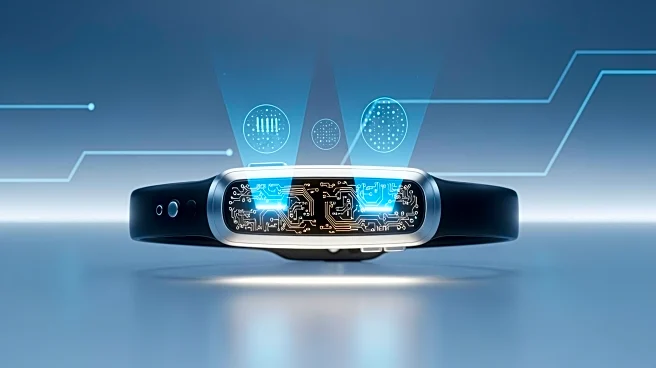What's Happening?
A new wave of AI-powered gadgets is transforming how artificial intelligence integrates into daily life. These devices, including necklaces, rings, and wristbands, serve various functions from productivity
tools to personal companions. Notable products include Bee, a $49.99 pendant that records audio and learns user preferences, and Friend, a $129 pendant that acts as an emotional support companion. Other devices like Limitless and Omi offer transcription and personalized advice features. These gadgets are designed to enhance productivity and provide companionship, with some facing criticism for privacy concerns.
Why It's Important?
The introduction of AI wearables signifies a shift in personal technology, offering users new ways to interact with AI in everyday settings. These devices could impact industries such as healthcare, where real-time data collection and analysis are crucial, and journalism, where transcription tools can streamline workflows. However, the rise of such technology also raises privacy concerns, as continuous audio recording may lead to surveillance issues. The market's growth reflects a broader trend towards integrating AI into personal devices, potentially reshaping consumer expectations and technology standards.
What's Next?
As AI wearables gain popularity, companies may face increased scrutiny over privacy and data security. Future developments could include enhanced features and broader compatibility with other devices. The market is likely to see more entrants, driving innovation and competition. Regulatory bodies may also begin to establish guidelines to address privacy concerns. Consumer feedback will play a crucial role in shaping the evolution of these products, influencing design and functionality improvements.
Beyond the Headlines
The ethical implications of AI wearables are significant, as they challenge traditional notions of privacy and consent. The potential for misuse in surveillance and data collection could lead to legal challenges and necessitate new regulations. Additionally, the cultural impact of AI companions raises questions about human interaction and dependency on technology. Long-term, these devices could alter social dynamics, influencing how people communicate and form relationships.










